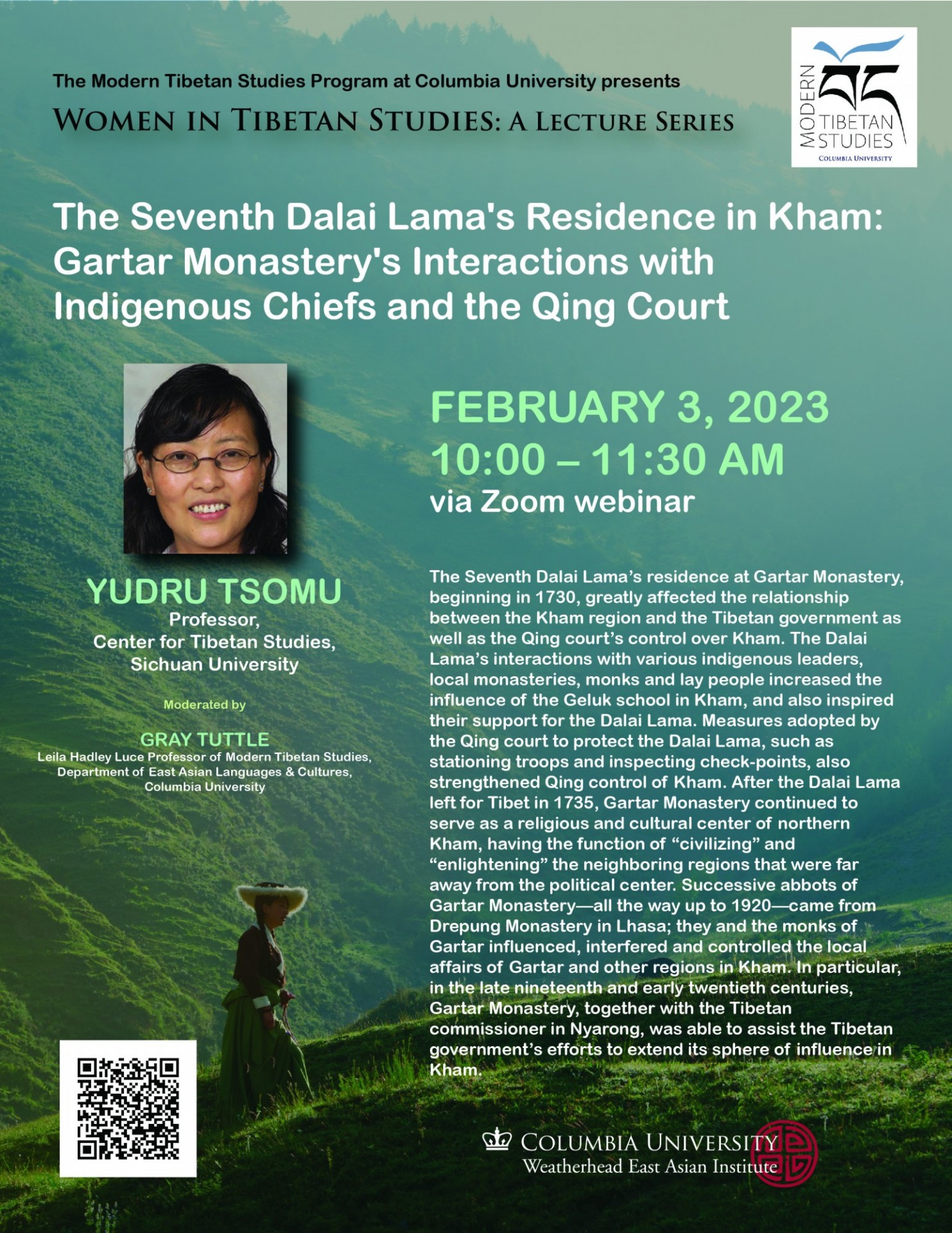Speaker: Yudru Tsomu, Professor, Center for Tibetan Studies, Sichuan University
Moderator: Gray Tuttle, Leila Hadley Luce Professor of Modern Tibetan Studies, Department of East Asian Languages & Cultures, Columbia University
The Seventh Dalai Lama’s residence at Gartar Monastery, beginning in 1730, greatly affected the relationship between the Kham region and the Tibetan government as well as the Qing court’s control over Kham. The Dalai Lama’s interactions with various indigenous leaders, local monasteries, monks and lay people increased the influence of the Geluk school in Kham, and also inspired their support for the Dalai Lama. Measures adopted by the Qing court to protect the Dalai Lama, such as stationing troops and inspecting check-points, also strengthened Qing control of Kham. After the Dalai Lama left for Tibet in 1735, Gartar Monastery continued to serve as a religious and cultural center of northern Kham, having the function of “civilizing” and “enlightening” the neighboring regions that were far away from the political center. Successive abbots of Gartar Monastery—all the way up to 1920—came from Drepung Monastery in Lhasa; they and the monks of Gartar influenced, interfered and controlled the local affairs of Gartar and other regions in Kham. In particular, in the late nineteenth and early twentieth centuries, Gartar Monastery, together with the Tibetan commissioner in Nyarong, was able to assist the Tibetan government’s efforts to extend its sphere of influence in Kham.
This event is part of the 2022-2023 lecture series on “Women in Tibetan Studies: A Lecture Series” and is sponsored by the Weatherhead East Asian Institute and co-sponsored by the Modern Tibetan Studies Program.
Registration: To register to attend this event online, please register HERE.

